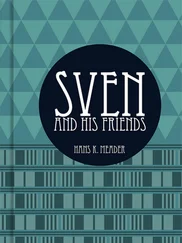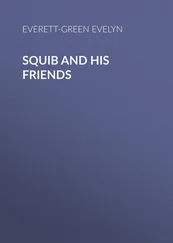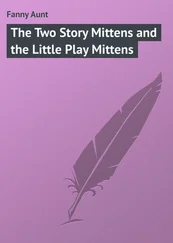Marshall Saunders - Golden Dicky, The Story of a Canary and His Friends
Здесь есть возможность читать онлайн «Marshall Saunders - Golden Dicky, The Story of a Canary and His Friends» — ознакомительный отрывок электронной книги совершенно бесплатно, а после прочтения отрывка купить полную версию. В некоторых случаях можно слушать аудио, скачать через торрент в формате fb2 и присутствует краткое содержание. Жанр: foreign_children, foreign_antique, foreign_prose, на английском языке. Описание произведения, (предисловие) а так же отзывы посетителей доступны на портале библиотеки ЛибКат.
- Название:Golden Dicky, The Story of a Canary and His Friends
- Автор:
- Жанр:
- Год:неизвестен
- ISBN:нет данных
- Рейтинг книги:5 / 5. Голосов: 1
-
Избранное:Добавить в избранное
- Отзывы:
-
Ваша оценка:
- 100
- 1
- 2
- 3
- 4
- 5
Golden Dicky, The Story of a Canary and His Friends: краткое содержание, описание и аннотация
Предлагаем к чтению аннотацию, описание, краткое содержание или предисловие (зависит от того, что написал сам автор книги «Golden Dicky, The Story of a Canary and His Friends»). Если вы не нашли необходимую информацию о книге — напишите в комментариях, мы постараемся отыскать её.
Golden Dicky, The Story of a Canary and His Friends — читать онлайн ознакомительный отрывок
Ниже представлен текст книги, разбитый по страницам. Система сохранения места последней прочитанной страницы, позволяет с удобством читать онлайн бесплатно книгу «Golden Dicky, The Story of a Canary and His Friends», без необходимости каждый раз заново искать на чём Вы остановились. Поставьте закладку, и сможете в любой момент перейти на страницу, на которой закончили чтение.
Интервал:
Закладка:
My mother told me a great many stories about all these other birds, but I will not put them down just now.
I must tell, though, about my naming. I had a trouble just as soon as my eyes opened. My big brother Green-Top was jealous of me. He is a larger, handsomer bird than I am, but even when we were babies my parents said that his voice would not be as good as mine. Just as soon as he got the use of his wings he began to beat me. My parents naturally stood up for me, because I am smaller and weaker and plainer looking. It was really surprising that I should turn out to be such an ordinary-looking little bird, when I have such handsome parents.
Green-Top told me that the old birds in the room said I was the exact image of my grandmother Meenie, who was a very common little bird from very common stock, that Miss Mary Martin brought into the bird-room out of pity for her.
Well, anyway, our Mary Martin was not slow in finding out that I was set upon, and one day as she stood watching us, she said to me, “Come here, you golden baby. I haven’t named you yet.”
She held out her hand as she spoke, and I lighted on her shoulder and got a lump of sugar for being obedient.
“I like the way you stand up to that naughty brother of yours,” she said. “You are a little hero. I am going to call you Richard the Lion-Hearted and Dicky-Dick for short.”
All the birds were listening to her, and when she stopped speaking you could hear all over the room the funny little canary sounds, like question marks, “Eh! What! La! La! Now what do you think of that! Such a grand name for a little plainhead bird!”
Naming a bird was a very exciting event in the bird-room and always caused a great deal of talk.
Green-Top was furious. His name sounded quite short and of no account, compared with Richard the Lion-Hearted. To show his displeasure he dashed across the room and brushed our Mary’s ears with his wings. That was a favorite trick of the birds—to brush the hair or the ears of Miss Mary, or to light on her head, and the way they did it showed the state of their feelings toward her.
“Naughty boy!” she said, shaking her head at him. “Hemp seed for every bird in the room except Green-Top,” and she fed us an extra portion of this seed we liked best while he, knowing better than to come forward, sat in a corner and sulked.
She was just like a mother to us all, so good and indulgent, but she would not have any bullies in her bird home, and if a bird got too bad she gave him away.
After a while she went out of the room, and Green-Top flew at me, beat me, and was beginning to chase me most wickedly, when our father called us to have a singing lesson.
By this time we were six weeks old, and had been driven out of our nest three weeks ago. My mother was now getting ready for a second family. Miss Mary had given her a fresh box with a new nest in it, and my mother was lining it with soft cow hair, moss, dry grass, and short lengths of soft, white string. Our Mary never gave her birds long bits of anything, for they would have caught on their claws and tripped them up.
We young ones watched her jealously. We had cried bitterly when we were put out of the nest. Our mother did not beat us, but our father did.
“Don’t you understand, babies,” she said, as she turned herself round and round in the nest to shape it with her breast, “that I must get ready for this second family? I could not have you hanging about your old home. You would step on the nestlings. You must go out in the room and get acquainted with some of the young birds, for a year hence you will be choosing mates of your own.”
“I don’t want to go out in the room, mother,” I chirped bitterly. “I want to stay with you. Green-Top is so ugly to me and sets my cousins on to tease me. They crowd me at night on the perch, they make me wait at the food dishes till they have eaten. I want to live with you. You are so pretty and so good and comfortable.”
“Darling, darling,” she twittered in her lovely soft tones. “Come at night and perch near me. Wait till your father puts his head under his wing.”
This was very soothing, and at least I had happy nights, although my days were always more or less worried. Parents don’t know what a lot of trouble their young ones have when they first leave the home nest.
To come back to our singing lesson. My father was terribly strict with us, and we just hated it, though our mother told us to get all we could out of him, for as soon as the new nestlings came he would not pay much attention to us.
“Then what will you do,” she said, “for a canary that can not sing is a no-account canary?”
“I wish I were a hen-bird like Cayenna,” I said sulkily. “She never has to sing.”
“Hen birds never sing,” said my mother. “Cayenna’s beauty and the exquisite coloring that she will have later on, for I shall make her eat plenty of pepper food, will carry her through life. You are a very plain little bird, my darling. Your voice will be your only charm. Promise me, promise me, that you will mind what your daddy says.”
“I’ll try, mother,” I used to say every time she talked to me, but at nearly every lesson, when my father lost his temper, I forgot what I had promised her, and lost mine too. This day I was particularly sulky, and it wasn’t long before I was getting a good pecking from my father Norfolk.
“I never heard such harsh and broken tones,” he said angrily. “Listen to Green-Top, how he holds his song like an endless strain.”
I tried again, but unfortunately I caught my uncle Silver-Throat’s eye, and broke down and gurgled and laughed in my father’s beak.
Didn’t I catch it! He and Green-Top both fell on me, and to save my feathers I flew straight to the most sheltered fir tree in the room, where Uncle Silver-Throat sat hunched up all day long, holding against the wall that part of his body which had once been a lovely tail.
He is a little Hartz Mountain canary, with a fluffy, mottled breast, and he has the most wonderful voice in the room.
He was laughing now. “Come here, poor little birdie,” he said. “There is no use trying to learn from your father; he is too impatient. He can’t sing, anyway. He is an English bird, and all his race are bred for form and appearance. My race is for song. It doesn’t matter how we look. Can he teach you the water-bubble, deep roll, bell, flute, warble, whistle, and the numberless trills I can? Does his voice have a range of four octaves?”
“No, indeed,” I said, “but he is my father, and I would like to learn from him.”
“That’s right,” he said heartily. “I really think you should control yourself a little more. Well, we’ll leave it this way. Go back to your father, when he becomes calm, and learn all you can from him, but come to me for extra lessons. I’ll teach you to sing much better than that scamp Green-Top does, for your voice is sweeter than his. He is a very disrespectful, saucy young bird. It is he that puts your father up to abusing you, I believe.”
“Uncle,” I said timidly, “two days ago you had a fine tail. Now you have none. Why is it?”
He smiled. “I am quite a deep thinker, birdie, and yesterday as I sat dreaming on this branch, I failed to notice that new, golden spangled Lizard canary who has lately come to the bird-room. She was acting queerly about the five eggs she has just laid. Finally I did remark that she was breaking and eating them. It seems she had a poor home before she came here, where she was fed stale seeds. So Avis, being scantily fed and having no dainties given her, used to eat a nice fresh egg whenever she could get it. ‘Well,’ I said to myself, ‘they are her own eggs. She has a right to eat them if she chooses,’ so I didn’t interfere.
Читать дальшеИнтервал:
Закладка:
Похожие книги на «Golden Dicky, The Story of a Canary and His Friends»
Представляем Вашему вниманию похожие книги на «Golden Dicky, The Story of a Canary and His Friends» списком для выбора. Мы отобрали схожую по названию и смыслу литературу в надежде предоставить читателям больше вариантов отыскать новые, интересные, ещё непрочитанные произведения.
Обсуждение, отзывы о книге «Golden Dicky, The Story of a Canary and His Friends» и просто собственные мнения читателей. Оставьте ваши комментарии, напишите, что Вы думаете о произведении, его смысле или главных героях. Укажите что конкретно понравилось, а что нет, и почему Вы так считаете.












